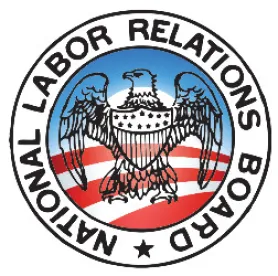In a flurry of year-end activity before losing its lone Democratic member, the National Labor Relations Board (the “Board”) recently issued two decisions that allow employers to maintain greater confidentiality protections during workplace investigations and to restrict employees from using company email for non-work related purposes (including for union purposes). These decisions reflect the continued efforts of the current Board to walk back decisions and policies of the Obama-era Board deemed contrary to the Supreme Court and previous Board precedent.
Confidentiality Rules During Open Investigations Are Presumptively Lawful Under the NLRA
In Unique Thrift Store, 368 N.L.R.B. No. 144 (Dec. 16, 2019), the Board held that employer rules designed to protect confidentiality during ongoing workplace investigations are presumptively lawful. Permissible confidentiality rules can prohibit employees’ discussion of investigations of incidents (as opposed to the incidents themselves) or the interviews conducted in the course of such investigations.
In reaching this decision, the Board overruled the Obama-era decision Banner Estrella Medical Center, 362 N.L.R.B. 1108 (2015), which required a case-by-case determination of whether confidentiality was necessary to ensure the integrity of a particular investigation.
Rather, the Board applied its by now familiar Boeing balancing test under which it weighs the likelihood that a facially neutral rule might interfere with an employee’s right to engage in concerted protected activity against the legitimate justifications supporting the rule. The Board determined that the rule in question was narrowly drafted to apply only to individuals involved in the investigation and to information learned or provided in the course of the investigation. Thus, while the rule might have some impact on an employee’s freedom to discuss discipline and workplace conditions, such an impact would be slight. By contrast, Unique Thrift Store had substantial and compelling business justifications for requiring confidentiality during open investigations: preventing theft and responding promptly to misconduct through investigations; protecting employee privacy and ensuring there is no retaliation, and ensuring the integrity of the investigation. Thus, the rule — and such rules generally — passed muster under the Boeing test at least insofar as applied to ongoing investigations
Unique Thrift Store’s rule, however, was not limited on its face to the duration of the ongoing investigation. Employees could thus reasonably interpret the rule’s confidentiality requirement to extend beyond the conclusion of the investigation. The Board, therefore, found it necessary to remand the rule for individualized scrutiny to assess whether any adverse impact on protected conduct caused by post-investigation confidentiality restrictions would be outweighed by legitimate justifications for such restrictions.
The Board’s determination as to the presumptively lawful nature of a rule regarding confidentiality during an open investigation aligns with the EEOC’s guidance requiring employers to protect the confidentiality of allegations to the extent possible, as well as with the practices of other agencies, including the Board itself.
All employers—and not just employers with unionized workforces—should review their policies regarding confidentiality. Under the NLRA, it is now presumptively lawful to maintain a work rule that requires confidentiality during an investigation. But, employers should not have a blanket rule requiring confidentiality once an investigation is concluded. Instead, employers should engage in individual assessments to determine the circumstances under which it will require post-investigation confidentiality and the business justifications underpinning such requirements.
Employers should also consider whether and the extent to which state law addresses confidentiality in situations of harassment, discrimination and/or retaliation, or restricts the use of nondisclosure agreements. For example, as we explained in Employers Prepare for Sweeping Changes to Illinois Anti-Discrimination Laws, as of January 1, 2020, Illinois’s Workplace Transparency Act regulates confidentiality and nondisclosure provisions in employment-related agreements. And New York, California, and New Jersey all have legislation curtailing the use of nondisclosure agreements.
Employers Can Restrict Employees’ Personal Use of Company Email and IT Resources
In Rio All-Suites Hotel and Casino, 368 N.L.R.B. No. 143 (Dec. 16, 2019), the Board determined that employers can prohibit and regulate employees’ use of company email and other IT resources and communication systems. An employer’s communication systems, including email systems, are the employer’s property, and the employer has a property right to control the use of these communication systems. This means that in the typical workplace, employees do not have a right to use these resources for Section 7 purposes, including for union organizing. But, the employer must ensure that it restricts the use of company email on a non-discriminatory basis.
This decision overrules another Obama-era decision, Purple Communications, 361 N.L.R.B. 1050 (2014), that permitted the use of an employer’s communication systems, including email during non-working time.
As reiterated in Rio All-Suites Hotel and Casino, it has long been clear that employees have Section 7 rights in the workplace. This includes the right to engage in oral solicitation during non-working time and to distribute literature face-to-face during non-working time in non-working areas. Even with changing technology, most employees still work in a traditional workplace and have adequate ability to engage in these forms of communication to exercise their Section 7 rights. Furthermore, smartphones, personal email accounts, and social media are additional avenues of communication that are available for employees to use for Section 7 purposes. Therefore, a prohibition on the use of an employer’s email system for nonwork purposes is not an “unreasonable impediment” to self-organization.
The Board recognized that there may be limited situations in which an employer’s email system furnishes the only reasonable means for employees to communicate with one another. There, an employee may have a right to engage in Section 7 activity using the employer’s communication systems. But the scope of this rare exception must be established on a case-by-case basis, and the Board did not elaborate upon situations where employees may have a right to use company email systems.
Following the Board’s decision, all employers should review and update handbook policies that address the use of employer equipment and communication systems. Employers can strengthen their facially neutral policies prohibiting personal use of employer electronic resources, including email. However, employers are reminded and strongly cautioned that prohibiting employees from using electronic resources for union-related matters, but permitting other similar non-business uses, remains unlawful.





 />i
/>i

